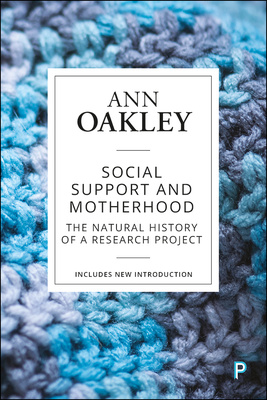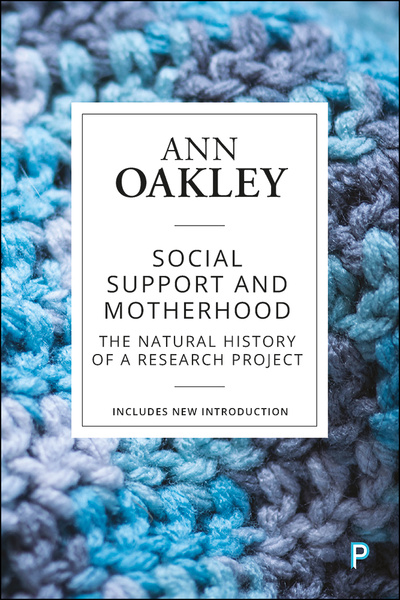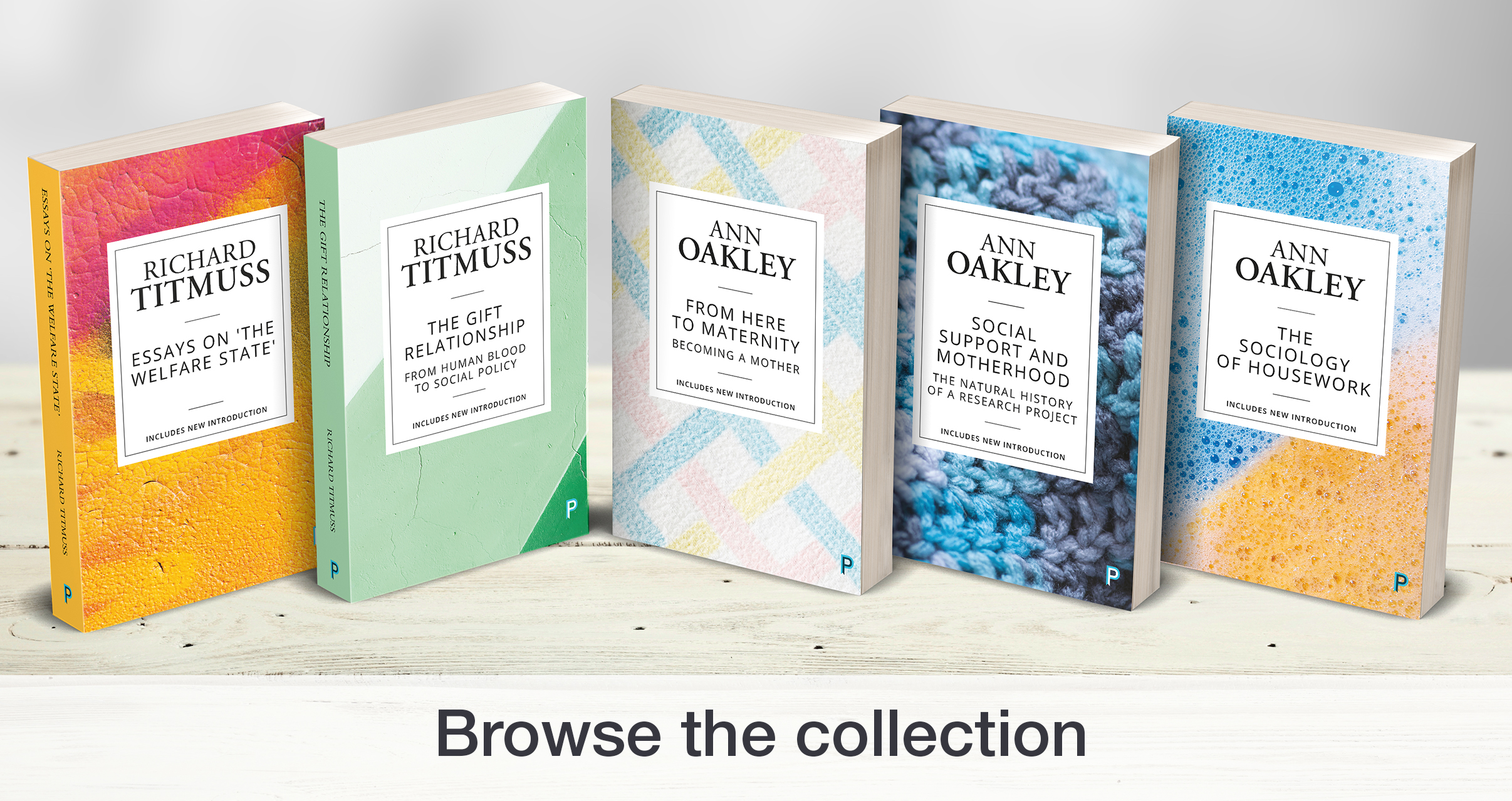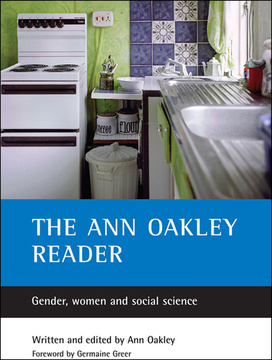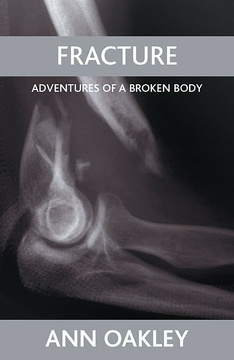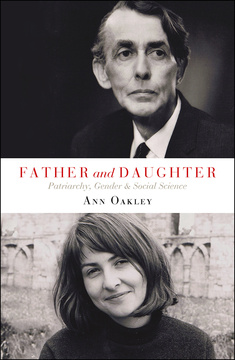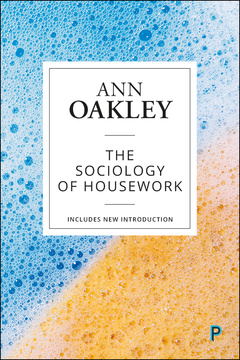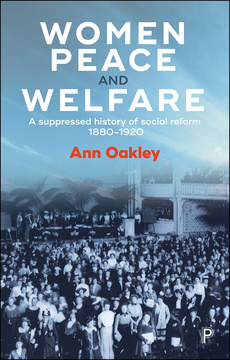Published
Sep 11, 2019Page count
540 pagesISBN
978-1447349488Dimensions
234 x 156 mmImprint
Policy PressPublished
Oct 31, 2018Page count
540 pagesISBN
978-1447349457Dimensions
234 x 156 mmImprint
Policy PressPublished
Oct 31, 2018Page count
540 pagesISBN
978-1447349495Imprint
Policy PressPublished
Oct 31, 2018Page count
540 pagesISBN
978-1447349501Imprint
Policy PressDrawing on her long experience as an academic researcher and writer, Ann Oakley develops a sociology of the research process itself, telling the story of how a research project is undertaken and what happens during it, to both researchers and those who are researched. This remarkable book focuses on a topic of great importance in the provision of health services – caring and social support.
Setting neglect of this topic in the wider context of an ongoing crisis in gendering knowledge, Social support and motherhood is now reissued for a contemporary audience. It has much resonance for social science researchers and others interested in the experiences of mothers, and in the relations between social research, academic knowledge and public policy.
Ann Oakley is Professor of Sociology and Social Policy at the UCL Institute of Education. A social researcher for more than 50 years, and author of many academic publications, she is also well known for her biography, autobiography and fiction. She founded both the Social Science Research Unit and the EPPI-Centre at the UCL Institute of Education, and has a long-term interest in gender, welfare, and the shaping of public policy.
Introduction;
Social Origins;
‘A Friend a Day Keeps the Doctor Away’: Social Support and Health;
Sickness in Salonica and Other Stories;
Eve in the Garden of Health Research;
A Bite of the Apple;
Who’s Afraid of the Randomized Controlled Trial?;
‘One of Mummy’s Ladies’;
Four Women;
‘Real’ Results;
Women at Risk;
The Poverty of Research;
Models of Knowing and Understanding.







